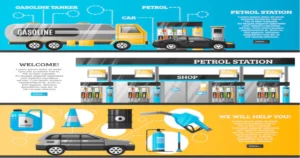what is a subcontractor?
You will know what a subcontractor is in this article. In today’s business world, especially in industries like construction, IT, and manufacturing, the term “subcontractor” is frequently mentioned. Subcontractors play a vital role in completing large-scale projects efficiently. But what exactly is a subcontractor? What do they do, and how do they differ from regular contractors? This article will explore everything you need about subcontractors, their roles, benefits, challenges, and more.
The Role of Subcontractors in Different Industries
Subcontractors can be found across many industries, each playing a unique role based on the nature of the project. Below are some of the critical sectors where subcontractors are crucial:
Construction Industry
In construction, subcontractors are an essential part of the workforce. Projects often require a wide range of skills, from masonry and carpentry to HVAC installations and electrical work. These specialized tasks are typically outsourced to subcontractors who bring expertise and efficiency, ensuring the project stays on schedule and meets regulatory standards.
Information Technology (IT)
In IT, subcontractors are commonly hired for short-term or specific technical tasks. These include software development, network setup, cybersecurity, and data analysis. Large tech firms often rely on subcontractors for functions that demand particular knowledge or to manage short-term projects that don’t require full-time hires.
Difference Between Contractors and Subcontractors
Many people confuse contractors with subcontractors, but there are significant differences between the two:
Contractor
A contractor, also known as a general contractor, is the party responsible for overseeing a project. They manage all aspects of the project, from hiring workers to ensuring it stays within budget and adheres to deadlines. Contractors are the main point of contact for the client and are responsible for delivering the final product or service.
Subcontractor
On the other hand, a subcontractor is hired by the contractor to complete specific tasks within the larger project. Subcontractors usually operate in a more limited capacity, focusing solely on the area they were hired to work on. They do not manage the entire project and are only accountable for their specific task.
How Do Subcontractors Work?
The workflow of a subcontractor typically begins once a contractor has been awarded a project. Here is an overview of how subcontractors operate:
Contractual Agreement
Subcontractors work under a contract with the general contractor. This contract outlines the scope of work, deadlines, payment terms, and any legal or safety obligations. The subcontractor is expected to fulfill the requirements detailed in the contract.
Specialized Task Execution
Once the subcontractor is hired, they perform the specific task they were contracted to do. This can be anything from painting a house to writing a custom software program. They often work independently of the contractor, though coordination may be required to ensure seamless integration into the larger project.
Advantages of Hiring Subcontractors
Hiring subcontractors can offer numerous benefits to both contractors and businesses. Here are some of the key advantages:
Expertise and Specialization
Subcontractors bring specialized skills that may not be available within the main contractor’s team. This allows for a higher quality of work, as subcontractors often have extensive experience in their specific trade or field.
Flexibility
Subcontractors are typically hired project-by-project, allowing contractors to scale their workforce up or down based on project needs. This is particularly useful for managing fluctuating workloads without the need to maintain a large, permanent staff.
Challenges Faced by Subcontractors
While subcontracting offers several advantages, it also presents unique challenges that subcontractors must navigate:
Dependency on the Contractor
Subcontractors often depend on the contractor for ongoing work. If a general contractor fails to secure new projects, the subcontractor may face downtime or inconsistent work schedules.
Financial Risks
Subcontractors are often paid at the end of a project or based on specific milestones. This can lead to significant financial strain if the contractor delays payment or the subcontractor underestimates the time and resources required to complete the task.
Legal Responsibilities and Contracts
Legal obligations are a critical aspect of the subcontractor relationship. Both contractors and subcontractors must know their legal responsibilities to avoid disputes and litigation.
Contracts and Agreements
A subcontractor’s contract typically details the scope of work, payment schedules, deadlines, and any penalties for non-performance or delays. Subcontractors must carefully review these agreements to understand their obligations.
Insurance and Liability
Subcontractors usually must carry liability insurance to cover potential damages or accidents while performing their work. Failure to carry the appropriate insurance can result in significant legal and financial penalties.
How to Become a Subcontractor
If you’re considering becoming a subcontractor, it’s essential to approach the process systematically. Here are detailed steps to help you get started and succeed in this competitive field:
1. Gain Expertise in Your Field
Specialized Skills Development
The foundation of a successful subcontractor is expertise. Depending on the industry, you should focus on acquiring specialized skills relevant to your field. Here are ways to enhance your knowledge and abilities:
- Formal Education: Pursue degrees or certifications recognized in your trade. For instance, electricians might require certification in electrical systems, while software developers may benefit from computer science degrees or coding boot camps.
- Hands-On Experience: Gain practical experience by working in your desired field. Internships, apprenticeships, or entry-level positions can provide invaluable exposure to real-world scenarios and challenges.
- Continuous Learning: Industries evolve, and staying updated on the latest trends, technologies, and best practices is vital. Attend workshops, online courses, webinars, and industry conferences to expand your knowledge.
- Networking: Join professional associations or groups related to your trade. Networking can lead to mentorship opportunities, where experienced subcontractors can share insights and guidance on best practices.
2. Register Your Business
Establishing Your Business Legally
Once you have honed your skills, the next step is formally establishing your business. Here’s how to navigate this process:
- Choose a Business Structure: Decide whether you want to operate as a sole proprietor, partnership, LLC, or corporation. Each structure has different implications for liability, taxes, and management. Consulting with a business advisor or attorney can help you make the best choice.
- Register Your Business Name: Choose a unique name that reflects your services and is easy to remember. Check with your local government to ensure the name is available and register it as required.
- Obtain Necessary Licenses and Permits: You may need specific licenses or permits to operate legally depending on your industry and location. Research the requirements thoroughly, as failing to comply can lead to fines or legal issues. For example, electricians typically need a state license, while construction subcontractors may need a general contractor’s license.
- Get Insurance: Liability insurance is crucial for subcontractors to protect against potential accidents or damages during work. Additionally, consider obtaining workers’ compensation insurance if you plan to hire employees, as this can provide coverage in case of work-related injuries.
- Set Up a Business Bank Account: Keep your personal and business finances separate by opening a dedicated business bank account. This will help you manage your finances more effectively and simplify tax preparation.
- Develop a Business Plan: A well-thought-out business plan outlines your goals, target market, pricing strategies, and operational plans. It serves as a roadmap for your business and can be useful if you seek financing or partnerships.
3. Build a Portfolio and Reputation
Demonstrating Your Work
As you start taking on projects, it’s essential to build a strong portfolio and reputation:
- Showcase Your Work: Document completed projects through photographs, testimonials, and detailed descriptions. A well-presented portfolio can attract potential clients and demonstrate your expertise.
- Solicit Client Feedback: After finishing projects, ask clients for feedback and testimonials. Positive reviews can enhance your credibility and help you secure future work.
- Leverage Online Platforms: Utilize online platforms and social media to market your services. Websites like LinkedIn, Angie’s List, or industry-specific forums can be excellent places to showcase your expertise and connect with potential clients.
4. Develop a Pricing Strategy
Understanding Your Worth
Establishing a fair and competitive pricing structure is crucial. Here are some considerations:
- Market Research: Analyze what other subcontractors in your field are charging. Ensure your rates are competitive, while still reflecting the quality of your work.
- Consider Your Costs: Factor in expenses such as materials, tools, labor, and overhead when determining your rates. Understanding your costs will help you avoid underpricing your services.
- Be Transparent: Clearly outline your pricing structure in contracts and proposals. This transparency builds trust with clients and helps avoid disputes later.
5. Network and Build Relationships
Connecting with Contractors and Clients
Strong relationships are vital for a successful subcontracting career:
- Attend Industry Events: Attend networking events, trade shows, and local business gatherings. Meeting potential clients and contractors can lead to job opportunities and referrals.
- Collaborate with General Contractors: Build relationships with general contractors who may need subcontractors for their projects. Being reliable and delivering quality work can result in repeat business and referrals.
- Utilize Online Networking: Join online forums, groups, or platforms that cater to your industry. Participating in discussions can enhance your visibility and connect you with potential clients and collaborators.
Conclusion
Subcontractors play a pivotal role in various industries, offering specialized skills and flexibility that enable contractors to complete projects efficiently. While being a subcontractor comes with challenges, including financial risks and dependency on contractors, the advantages of expertise, flexibility, and cost savings make subcontracting a valuable asset for subcontractors and industries that rely on them.
Frequently Asked Questions (FAQs)
What does a subcontractor do in a project?
A subcontractor is responsible for completing specific tasks within a larger project. They specialize in particular areas, such as plumbing, electrical work, or software development, providing their expertise to ensure a specific aspect of the project is completed with high quality and efficiency.
How is a subcontractor different from a contractor?
While contractors oversee and manage the entire project, subcontractors are hired to focus on particular tasks. Contractors deal with clients, budgets, and timelines, while subcontractors work under the contractor, handling specialized work without managing the overall project.
Can subcontractors work in industries other than construction?
Yes, subcontractors are familiar with various industries, including information technology (IT), manufacturing, and marketing. For instance, subcontractors might handle cybersecurity or software development tasks in IT. In manufacturing, they may focus on assembling specific components.
What are the benefits of using subcontractors in a project?
Subcontractors offer several advantages, such as access to specialized skills, cost-effectiveness, and the ability to complete tasks more efficiently. Hiring subcontractors allows contractors to leverage experts without the long-term commitment of full-time employees, helping projects run more smoothly.
How do subcontractors get paid?
Subcontractors are typically paid based on a contractual agreement through progress payments or a lump sum upon completion. The payment terms are often defined in advance in the contract and can vary depending on the scope and duration of the work.
What qualifications do I need to become a subcontractor?
To become a subcontractor, you must be skilled in a specific trade or field. Depending on the industry, this may include certifications or licenses. Additionally, subcontractors typically need to register their business and meet any legal requirements relevant to their expertise.
ALSO READ: ADD Testing Near Me: A Comprehensive Guide







